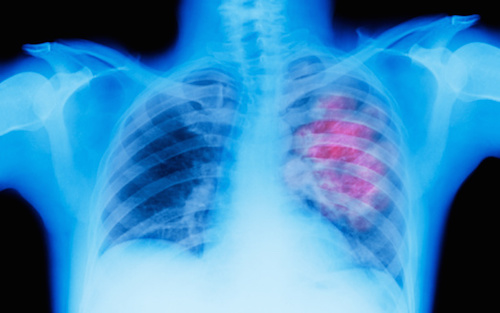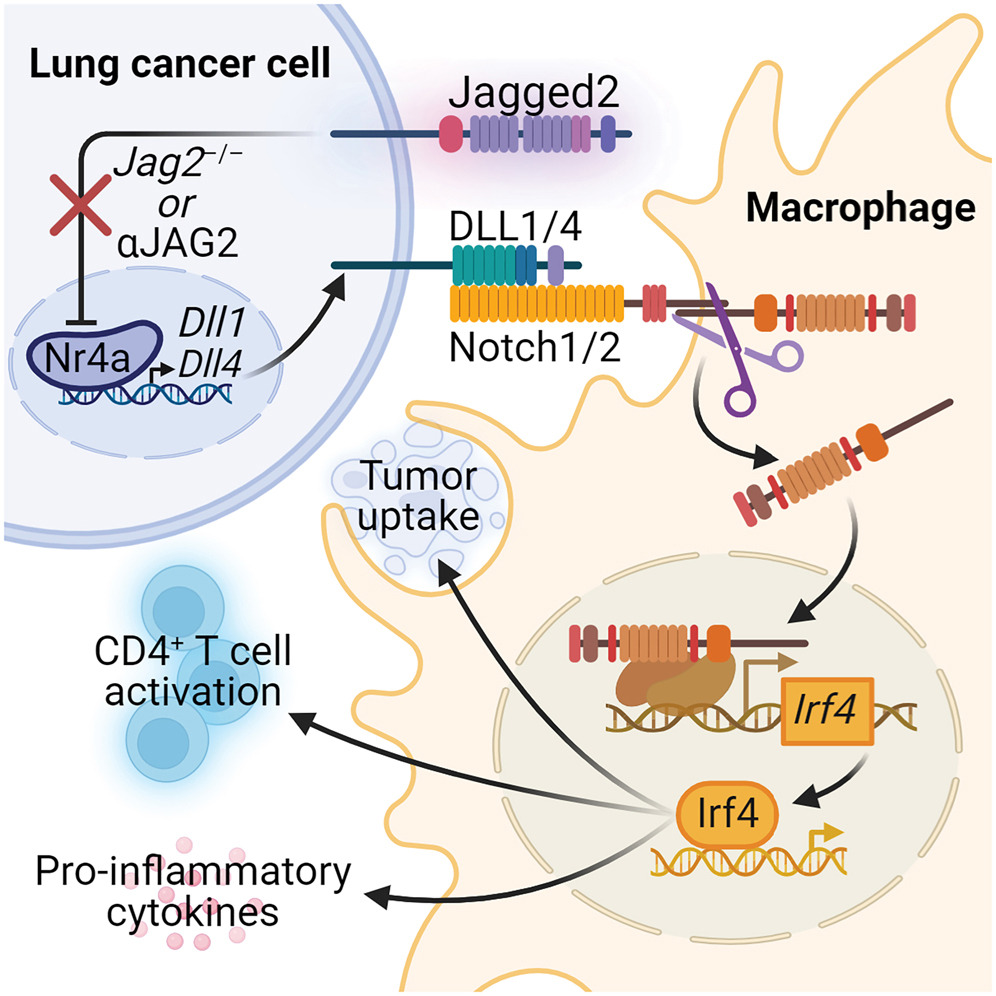
Scientists have discovered that removing Jagged2, a molecule involved in the Notch signaling pathway that regulates tumor cell growth, stimulates the spread of macrophages to recognize and eliminate non-small cell lung cancer (NSCLC) cells.
The Notch family of receptors are bound by a group of ligands, including Jagged 1 and 2, and Delta-like (DLL1,3, and 4). In a study in Immunity from the Moffitt Cancer Center, researchers focused on the role of Jagged2 and how it affects the immune cell tumor microenvironment in NSCLC. This is because NSCLC tumors expressing Jagged2 are associated with poor outcome and immune evasion.
In studies in NSCLC cells, eliminating Jagged2—either by removing it entirely or by using antibodies targeted against it—resulted in the expansion of macrophages, whose role is to recognize cancer cells and activate protective immune responses.
“We are showing that removing Jagged2 helps to rewire the whole immune process by targeting just one molecule on the cancer cell; it reprograms the myeloid compartment in the tumor microenvironment,” explains author Rachel Jimenez-Matthews. “Removing Jagged2 specifically impacts the macrophages, which then retool the whole immune microenvironment towards an immunostimulatory, anti-cancer environment.”
Specifically, when Jagged2 was removed or inhibited, the lung cancer cells started expressing more DLL1 and DLL4. “Unlike Jagged2, these molecules send an entirely different message to macrophages, telling them to fight back against the tumor cells,” said senior author Paolo Rodriguez, chair of the Department of Immunology at Moffitt.
He added that a key player in this reprogramming process is a molecule called IRF4, a transcription factor in macrophages that helps reprogram them into a more immunostimulatory mode. Blocking Jagged2 triggers macrophages to receive signals from the molecules DLL1 and DLL4 that in turn activate the Notch signaling pathway and drive IRF4; then these macrophages target and eliminate cancer cells.

The results of their studies suggest that Jagged2 blockade therapies represent a promising strategy for overcoming immunosuppressive myeloid cells and restoring protective immunity in tumors.
Over the past year, the Moffitt team has developed improved lung tumor models to study this pathway in situ in the lungs of mice instead of flank studies. The researchers hope to learn more about the IRF4 response in the macrophages. “It is unlikely that that is just Jagged-only response,” says Jimenez-Matthews. “If we can find something that more fully underlies the reprogramming in macrophages, that would benefit not just non-small cell lung cancer and anti-Jagged therapies, but how to reprogram the myeloid compartment in many different cancer types.”













